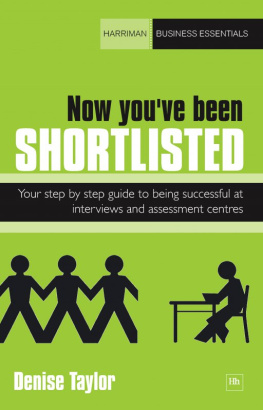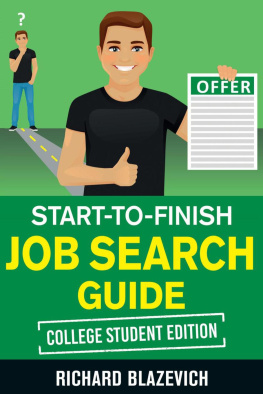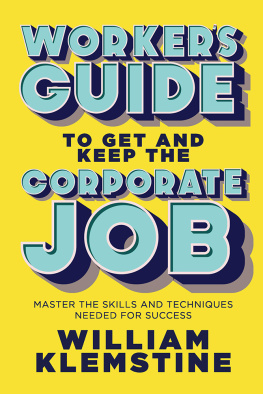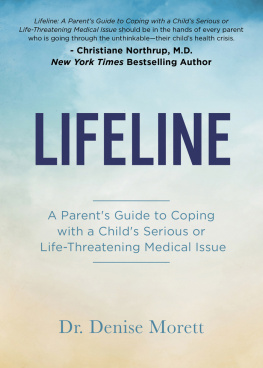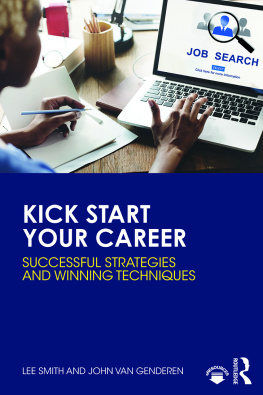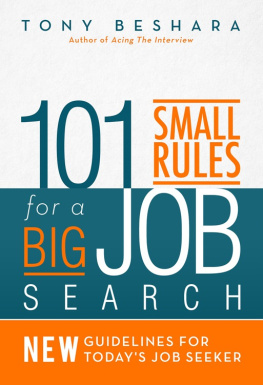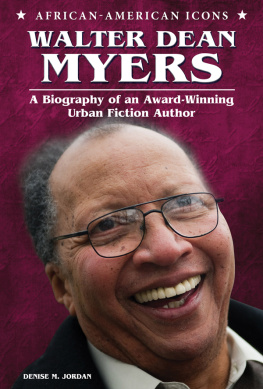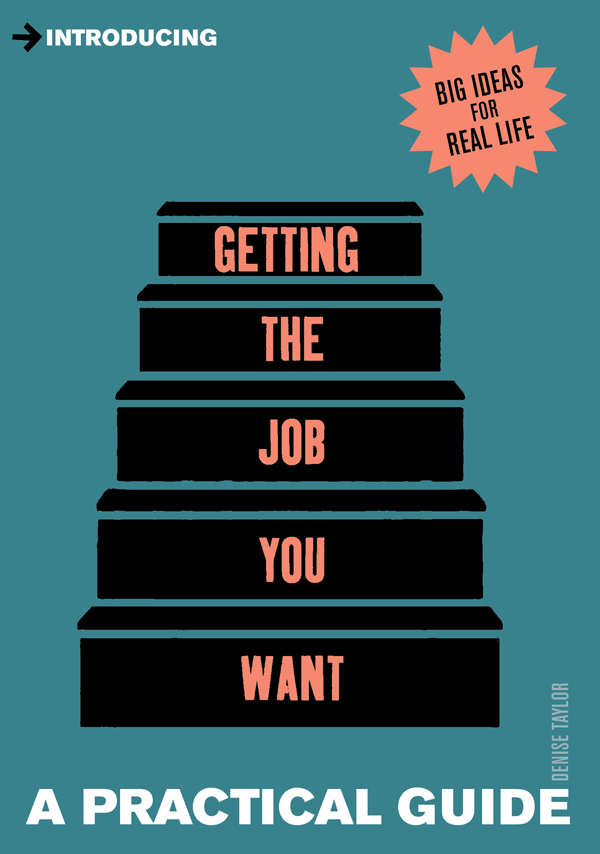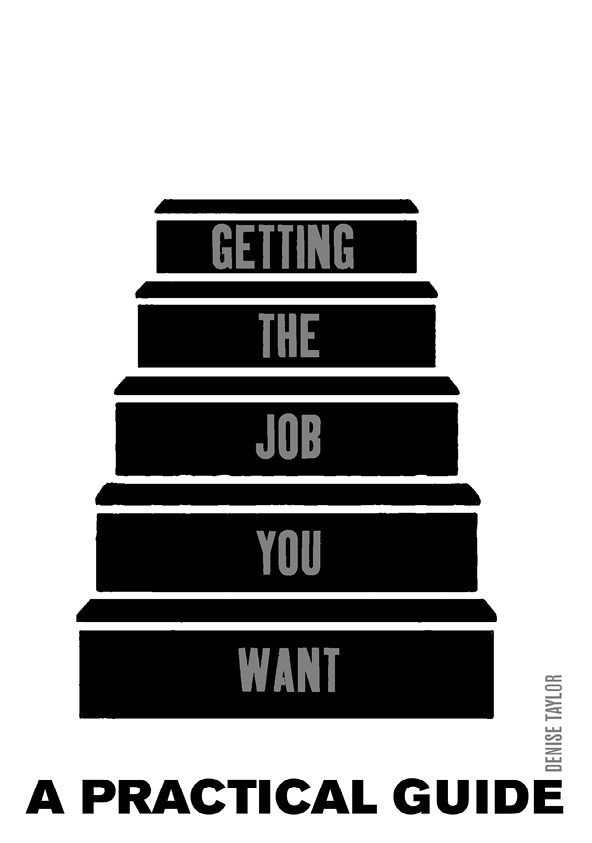Through her double-award-winning Amazing People Career Coaching Company, Denise offers inspirational and practical guidance, using an open, direct and supportive coaching style. Many people offer career and job search coaching; what has made Denise stand out for over 25 years is how she uses her energy and creativity to identify new trends and adapt and improve traditional approaches for the benefit of her clients.
Denise regularly appears as an expert at career forums, on radio and in the British press, including The Times, the Sun, Esquire, Metro, the Daily Mail and the Guardian.
1. Introduction
Why do some people find it easy to get the career move they want while others flounder and give up? A lot of it is down to what goes on inside their heads: when people think they will be successful, they probably will; but if they doubt themselves, their likelihood of success is slim.
Im going to talk you through a process to ensure you stand the very best chance of success in getting the career you want. As a psychologist, Ill be including relevant and helpful psychological theory, but only when it makes a difference.
This book is full of practical advice, helpful tips and facts. Its also easy to read and focused on helping you to achieve your goals.
I want you to be a HERO to achieve your goals. I was introduced to the HERO concept by Professor Fred Luthans, University and George Holmes Distinguished Professor of Management at the University of NebraskaLincoln whose current research focuses on positive psychology. Being a HERO involves:
- Hope that you will be successful and persevere as you work towards a goal.
- Efficacy the self-confidence and the belief that you will succeed, and that you will put in the necessary effort.
- Resilience to bounce back from disappointments and problems.
- Optimism a positive mindset that you will succeed both now and in the future.
Without the belief that you can achieve your goal you may as well not even get started. But it cant be just a dream or a goal without foundation; you have to be willing to put in the work and to have sufficient background and experience to make you a credible candidate. This may mean that you need to choose an interim step, to find a job that will get you on the way to where you want to go.
We all have disappointments: we dont win the race, we lose out on buying something at an auction, or we have an injury that stops us participating in a game. Its how we respond to that disappointment that matters.
We have to treat each disappointment as a learning experience, and use this to do better next time. We also need to remember that sometimes the decision is outside our control. Just like an actor going for a casting call where the casting director may have an ideal in mind (if we are the wrong build or without a particular background, we will never be chosen), so at interview, the job may already be allocated to someone and the company is going through the motions, or they want someone with specific experience which wasnt made clear in the job ad.
Lets look at the process you will follow.
Be clear on your goal
You should be very clear on the job you are looking for, both the job title and your ideal company. Knowing the job provides focus for all further activity.
If you want to start a career, for example marketing in the fashion business, any activity you undertake from now on should be to enhance your chance of success and look good on your CV. If you want to move from management accountant to financial controller, your activity should focus on developing more senior leadership and business skills and experience to enhance your technical experience.
As a recent graduate you may have a desired goal, but in the short term be happy to be offered any job that seems like a step in the right direction.
Do you know what you want to do? If not, take time to do research to identify a career that will both excite you but that is also within your capability of getting. Chapter 2 will get you started.
Understand your target
Once you know the type of work you want and the type of organization you want to work for, you focus on research. Treat this like a research project and find out as much as possible about the organization, its competitors and the industry as a whole. This is covered in Chapter 3.
Building relationships through networking
You will probably find your next job through someone you know, so you need to network. Let me show you how to do this effectively in Chapter 4. Ill cover online networking too.
Fact-finding interviews
Sometimes you need to find out more about a job so you know whether you should apply or not. Setting up fact-finding interviews can really help your research phase, and sometimes lead to work. Chapter 5 will guide you in how to do this.
Understand your strengths to create your CV
You are not creating a CV in isolation; you should focus it on the particular job you seek. You must understand and be ready to exploit your strengths and your CV should make it clear to the reader what you want. Chapter 6 will focus on your CV.
Getting ready for your job search
Were going to take a time out before you get on to your job search proper. Having done all your preparation, what is the best strategy to take? You must be organized, and have some systems in place. We will cover this in Chapter 7.
Creating your message the pitch
You will need to develop a short pitch you can say to anyone who asks what you are looking for. Too many do this badly; youll be fine if you follow the guidance in Chapter 8.
LinkedIn
Facebook, LinkedIn, Pinterest where do you start? You probably use Facebook socially, so should you use this or something else to help you get a job? Right now you need an effective LinkedIn profile, and Chapter 9 will make sure you are using LinkedIn to your advantage.


